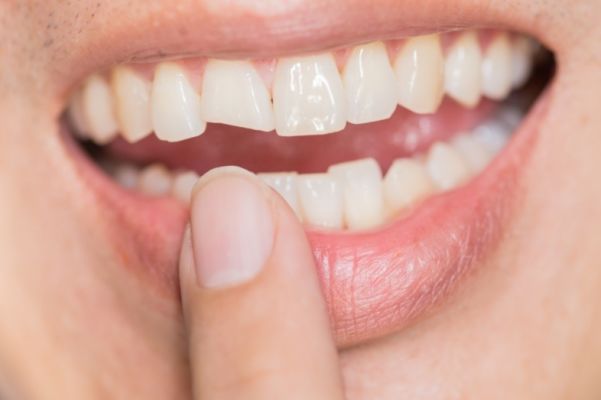
How To Fix A Chipped Tooth

Enamel is the toughest tissue in the human body, but even it has its breaking point. A hard blow to the mouth can be enough to cause a tooth to snap. This is especially true if there is already decay within.
What To do When A Tooth Chips
First, urgency is key! Because of how teeth are chemically constructed, you need protection for the remaining tooth. Once chipped, it can become vulnerable to infection and other external influences, so you will want to get to the dentist as soon as possible.
A chipped tooth can be painful, so you may also want to take an over-the-counter painkiller if needed.
It is critical that the tooth does not become any more damaged, so eating if possible should be avoided, but if a necessity, try and eat soft foods and avoid the broken tooth if at all possible.
Once you get to the dentist, there are several ways in which they will approach this issue:
The first stage is to assess the extent of the damage. If only a small chip, then a one-off visit should be enough to get you back on your way.
A more complicated break will often require a more structured approach, which can add to both the time it takes and how much it costs.
Depending on the type of break, there are various methods to treat the issue. The most common include:
Dental Veneers
When a front tooth breaks, we can feel both embarrassed and concerned. The good news is that a dental veneer can often be an easy and fairly inexpensive fix.
In essence, a dental veneer is a thin shell of porcelain (or sometimes resin) the same shade as your tooth. It acts much like a false fingernail with a built-on thicker piece to replace the missing part.
To get the tooth ready, your dental practitioner will take off 0.3 to 1.2mm of enamel, then will take a mould of the tooth. This is then sent to a specialist dental laboratory where the veneer is made.
After a week or two, the dentist will call you back in to have the veneer fitted.
This part of the process uses a chemical ‘cement’ that allows the attached veneer to harden quickly and act much as your previous tooth did.
Filling
If the tooth damage is relatively small, your dentist may solve this with a white filling. If, however, it is a front tooth and has cosmetic visibility, bonding may be the preferred option.
Bonding is a simple process that usually doesn’t require the tooth to be numbed. The dentist will etch the surface with specialised liquid or gel to create roughness, which then allows the bonding material to adhere easily. They will then apply an adhesive to the tooth followed by tooth coloured resin.
The tooth is then shaped for a natural appearance, and a bright light is utilised to harden the new tooth.
Crown
If a larger piece of the tooth breaks off, or there is substantial decay present, then a more involved procedure will be required. This is when a cap or crown may be suggested.
The dentist begins by filing down the remainder of the broken tooth, to reshape it prior to taking a mould which is sent to a dental laboratory where the crown is made.
Crowns themselves can be made from various materials, such as metal, metal bonded to porcelain, full resin, or full ceramic. The all-metal options are the toughest, whereas porcelain and resin are the preferred cosmetic option due to their ability to be made to look almost identical to your teeth.
If the whole tooth is gone but the root remains, the dentist or endodontist specialising in root canals may perform a root canal to create a structure on which a crown can be built.
This process ordinarily takes a couple of visits.Firstly, x-rays may be taken to check the roots and adjacent bone health. Once the dentist is happy to proceed, the tooth and its surrounding gum are numbed, and any remaining tooth is removed. In its place, the crown is built.
If the breakage has left some part of the tooth remaining, your dentist may use a filler material to build a structure on which to set a crown. After this, a putty-like material is used to create an impression of the tooth as well as its sister tooth (the one opposite it when biting). These impressions are sent to a dental laboratory where the crown will be made.
While this process happens, your dentist will place a temporary crown made of acrylic or thin metal to preserve the area in the meantime.
Root Canal Therapy
If the pulp is exposed (the nerves and blood vessels within the tooth) then bacteria ingress can be a major problem, leading to rapid infection and tooth decay.
Root Canal Therapy is the process of removing the pulp, cleaning the root, and then sealing it.
It sounds painful, but in fact is no more painful than filling a standard cavity. After root canal therapy, it is essential that the remaining tooth is covered with a crown to protect the now-vulnerable tooth.
What To Do If Your Tooth is Knocked Out
In the rare instances where the whole tooth is actually fully dislodged due to impact, it is important to know what steps to take to preserve and care for both teeth and the patient:
Step 1, Collect tooth or teeth
Handle the knocked-out teeth with extreme care
Touch only the crown (top) of the tooth, do not touch the root
Rinse the tooth gently in lukewarm water for less than ten seconds and only if there is debris on it
Do not scrub, or brush it in any way
Step 2, Try to re-insert
Rinse your mouth with warm water
If possible, reinsert the tooth back into its slot and bite down on gauze to hold the tooth in place
If unable to reinsert, or if dealing with fragments of teeth or baby teeth, store them in milk or saliva, or between your cheek and gum to prevent them drying out
Step 3, Treat any symptoms
Control bleeding with cloth or gauze
For pain or swelling use a cold flannel, or suck something cold
For the pain, take paracetamol or ibuprofen
A knocked-out tooth is a dental emergency. Often the tooth can be re-implanted, but time is of the essence - even 30 minutes can be the difference between keeping or losing the tooth.
After damaging your tooth, it is therefore essential to visit your dentist as soon as possible. Remember to take the teeth and any fragments with you!
Life Dental and Wellbeing
Whether your concern is a chipped tooth, dental implants, cosmetic enhancements or just a check-up, please call our friendly team today on 01392 278843 to see if we can help you get your dental journey back on track.




